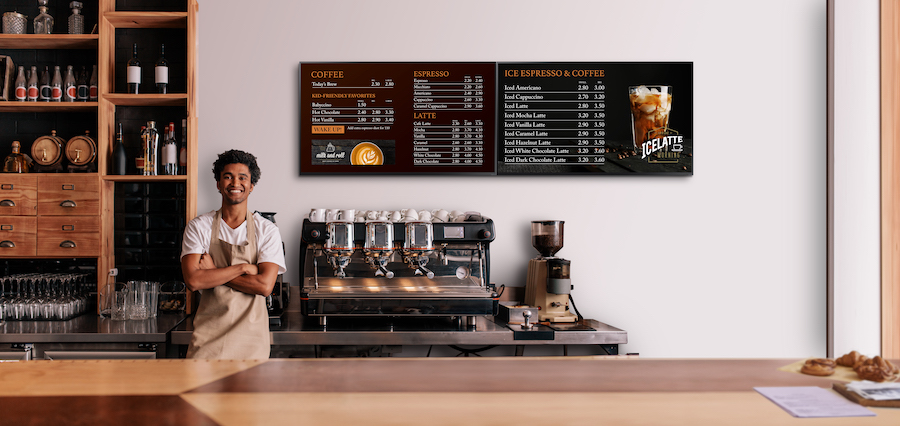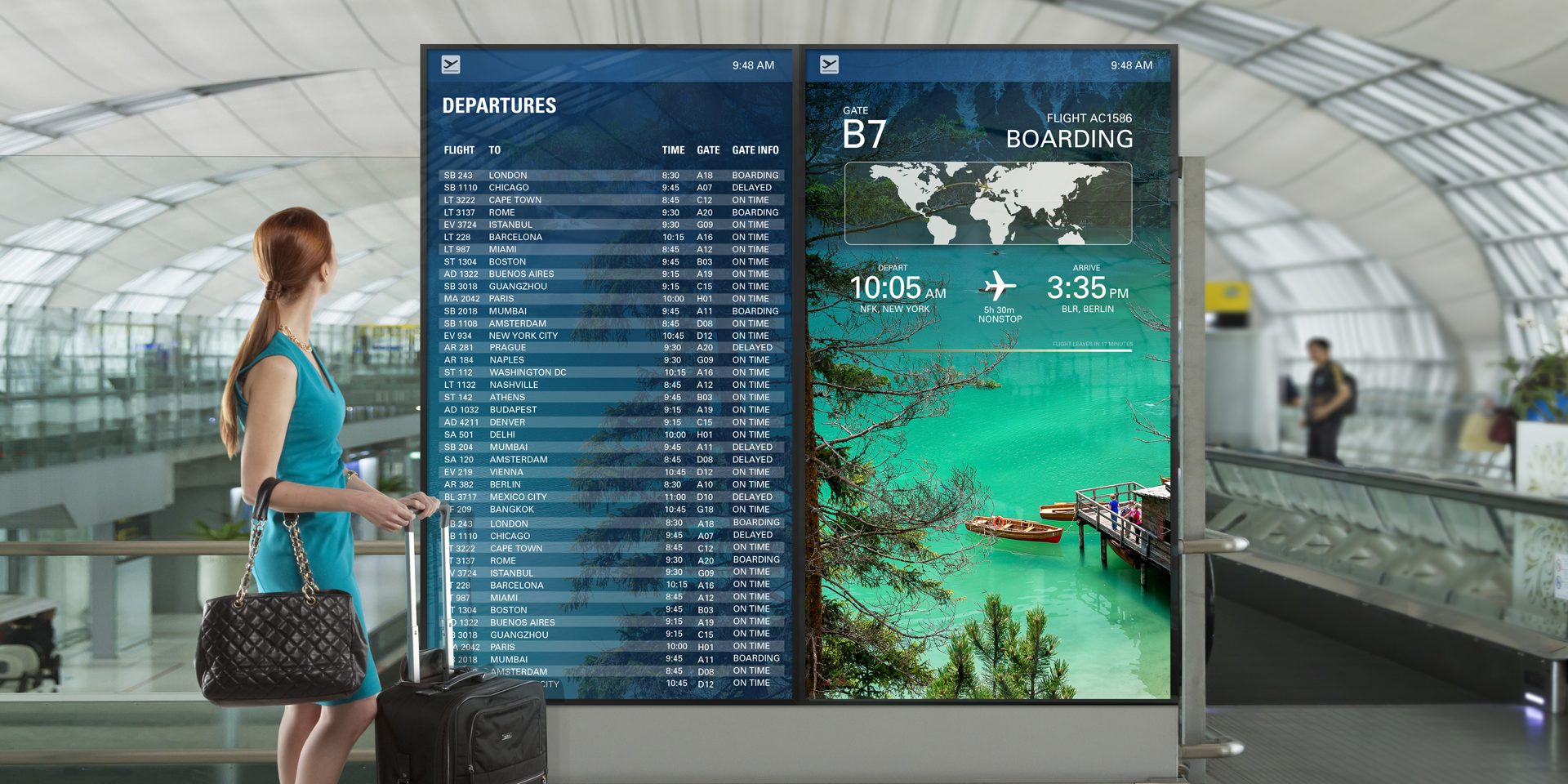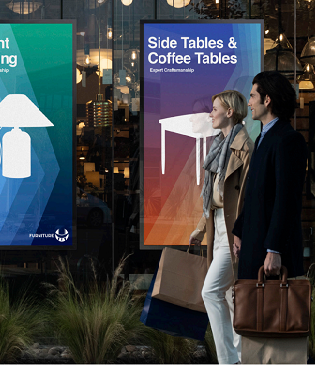Digital signage is now ubiquitous in the retail and food and beverage industries, and that’s partly because it’s become affordable enough for even small brands to implement. However, just a digital sign is not enough to stand out from the others. Digital signage also needs a complementary content management system (CMS) to maximize the impact of the displays. Because of the inherently dynamic nature of retail and food and beverage businesses, effective content management ensures the optimal performance, relevance and overall success of a digital signage strategy. Here’s what you need to know.
What is a CMS?
Simply put, a CMS is a software application that helps create, edit, manage and publish digital content. Nearly every business or organization using digital signage needs one, and the best come with an intuitive interface that allows users to easily update their content without extensive technical knowledge, such as coding skills. CMS platforms also typically include features such as indexing, search capabilities, themes and templates, analytics, data reporting and social media integration tools — all of which translate into more dynamic, responsive and impactful digital signage.
What is the best CMS for small businesses?
CMS platforms are essential for small businesses in the corporate, retail and food and beverage industries. In terms of customer satisfaction, it’s critical that menus and online shopping portals stay current and updated. Whether operators want to promote a limited-time offer, remove an item or instantly announce an overstock sale, digital signage can disseminate that information quickly.
Small businesses typically do not have the resources to employ dedicated marketing and IT teams, so they need solutions that can quickly meet their specific needs. When searching for a CMS solution, operators must take several factors — price, security, ease of use, speed of deployment and remote management — into account.
Samsung VXT CMS satisfies all of these. The cloud-based solution for digital signage brings together flexible and efficient operation, faster setup and system recovery, and highly intuitive content creation and management capabilities to help businesses unlock the powerful potential of business displays.
How to use a content management system at your business
Integrating a CMS into your business is a process that takes careful planning and consideration. However, if your digital signage system is already in place, it can be done fairly quickly. The first step is to define who will manage the CMS internally. Remote management — one of the major benefits of a CMS — means that anyone, anywhere can create or edit content with a PC or mobile device.
Digital signage content management made easy
Get your complete guide to configuring and tailoring real-time messaging using an integrated CMS. Download Now
Samsung makes content creation even easier with VXT Canvas, which features pre-loaded, drag-and-drop templates, artwork and images that turn even the most tech-challenged user into a graphic designer. Users can also create original content with custom and company fonts. Deployment is a snap: Once the content is finalized and approved, it can be scheduled to disseminate to one device, those within a certain geographical region or company-wide.
When it’s time for software updates, businesses can tap directly into the Samsung cloud portal instead of visiting individual websites and servers. For this reason, initial setup — as well as system recovery should an error occur — is faster, which helps businesses stay agile. With Samsung VXT CMS, changes to the display settings are made in real time, and multiple devices can be managed and controlled simultaneously for optimum efficiency.
Additionally, VXT encourages testing before purchase. Previously, businesses needed to have digital signage in place before they could install on-premises software to run a test or trial. VXT CMS allows buyers to try the solution before the purchase using any device that supports a Chrome browser. If the business decides to go with VXT, implementation is quick and easy since no physical servers are needed.
Another standout feature of Samsung VXT CMS is its tagging structure, similar to how hashtags are used to easily search social media posts. The VXT tagging system is more flexible and efficient than other management systems with a Windows OS and is especially useful when people from different regions or countries are contributing to content creation.
You can pay as you go, too. Users only have to pay according to needs, leaving server management and maintenance to the cloud service provider. That saves tremendous time and effort during integration, while at the same time allowing scalability when needed.
Maintaining your small business CMS
Samsung VXT CMS provides invaluable peace of mind, even when it comes to system failures. Much like Legos, VXT breaks down applications into small block structures that are much more granular than other cloud-native solutions. This ensures that in the event of an error, shutdowns are focused, maximizing recovery time and minimizing disruptions to business operations. This level of reliability is critical for small business owners who already juggle multiple responsibilities.
Investing in a CMS like Samsung VXT can be a game-changer for small businesses looking to enhance their digital signage strategy. With its user-friendly interface, cloud-based efficiency and robust recovery mechanisms, Samsung VXT CMS offers a comprehensive solution tailored to the unique needs of the retail and food and beverage industries.
Sign up for a VXT free trial here. Also, watch this free video about how Samsung solutions and services address content management and managed services.








